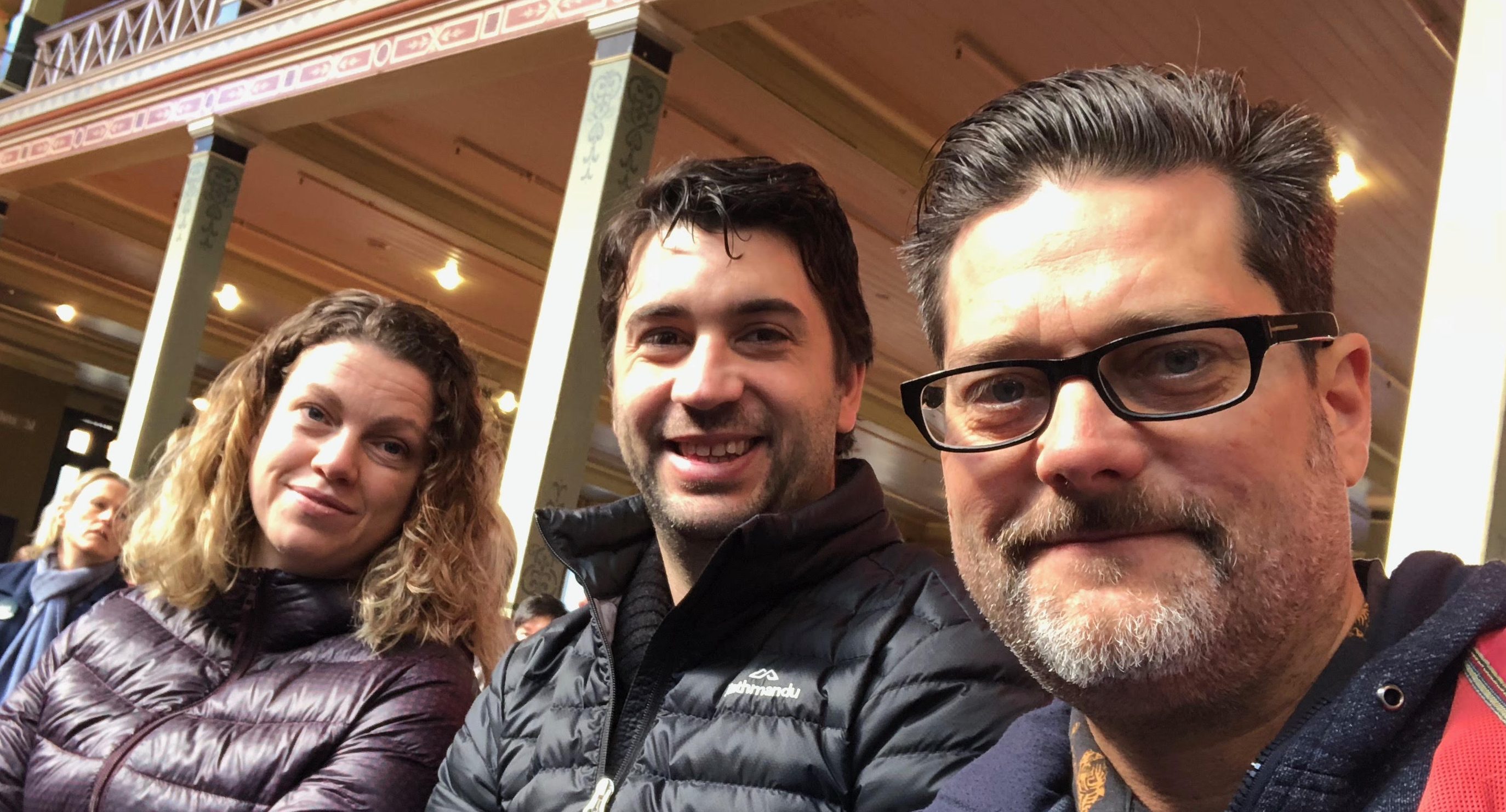
Last week, some of our team rocked up to the fantastic bi-annual conference, Above All Human. Held at Melbourne’s Royal Exhibition Centre on the 29th of August, it presented an inspiring collection of speakers, largely focused on sharing insights and learnings for the tech start-up community. Themes ranged from the future of virtual reality and quantum computing, to how to establish and maintain the health of your team.The following is a roundup of some of our top takeaways:
Bec
It always surprises me how generative it can be to spend a day listening, reflecting and applying what you’re hearing to your projects.
Daniel Petre provided insight on the current direction of AI and its likely future influence in the tech sector. I found his discussion on how this will affect how companies differentiate themselves interesting. Particularly companies that have historically relied on their data being a key differentiating factor. “Data is important – until you reach about 90% results [from the AI]. After that it’s all about how you get [the product] into workflows. … Data will not differentiate or protect you after that.”
Software sometimes manages to avoid dealing with experience issues because it is operating in a particular niche. But AI is likely to mean we see more startups shaking up industries by replacing whole workflows, and the human experience of this will be critical to success. The ability to radically improve user experience or help customers trust in the advice of a computer intelligence, will see startups reshaping industries. And sooner than we might expect.
The theme of diversity in tech was present throughout the day and created many reflections for me, as I have been recently trying to understand my own privilege and biases. The talk from Sacha Judd moved from diversity, to inclusivity, and got me thinking about my own interactions with others. I tend to be pretty shy, which I’ve been told can actually seem like I’m being aloof (never my intention!). However, I’m understanding more and more that if I want to address my own privilege, I have a responsibility to actively make efforts to help others feel comfortable and included, especially at a personal and social level. Even if it’s difficult for me. It’s something I can do and am actively working on. Inspired by Sasha’s talk, and as someone who loves a good framework, I came up a few questions to support me to connect and open up conversations with others on a personal level:
- What are you a mad fan of right now?
- What are you an expert in that other people wouldn’t know about you?
- What do people usually assume about you which is wrong?
- What’s your biggest frustration?
Alvaro
It was an eye-opener to listen to all of the startup founders sharing their different points of views. There were many similar fears, doubts and failures they had on their journey implementing their vision and trying to make an impact on the world.
Within a great diversity of topics, we learnt about the future of humanity and how the quantum computing will exponentially increase the computer power creating a new revolution and with twilio slack it’s easier to communicate with the team. In the medical field the technology is enabling new gene editing tools opening a new world and many ethical discussions that will come with it.
Overall I had an awesome day that left me with a lot of ideas bouncing on my head that I’m still processing.
Mark
One of the first talks of the day, by Irene Au (former lead of UX at Google!), got me thinking a lot about empathy and its role in great design and in technology in general. This is top of mind for me right now as we are working hard on our own software platform, Scaffle, aimed at supporting public servants deliver better public consultation. She made the insightful point that once we make our tools, they make us. This cuts to the core of why we are so inspired by Scaffle – by putting everything we can into making delivering engagement and consultation a great experience for public servants, we hope to see much more of it in the world, and more of it that makes for better governance, and better society.
However, later in the day, Mina Radhakrishnan, helped bring the role of empathy home with the prompt that we need to “feel the pain” of our customer, in order to really understand the problem we are helping solve with our product. I am now on the hunt for methods for “channeling the pain” – let me know if you know of any. It also made me think about the fictitious device from the amazing television series, Black Mirror, that allowed a doctor to feel the pain of his patients, to better diagnose:

Screenshot from Black Mirror, season 4, episode 6
(This of course led to disastrous results for the doctor!) But… in the context of design of software, it’s a great thing to keep in mind: the more we can actually channel the pain the customer feels, the better we can deliver value to solving that problem.
A final reflection came from Michael Bircuk, founder and CEO of Q-CTRL, a quantum computing startup. In a conversation I had with him after during tea break, he related the challenges of bridging the world of deep tech research, with the needs and interests of business. The former are quintessential “slow thinkers” – those who grapple with the long term and big, complex and hard challenges. In contrast, “fast thinking” entrepreneurs must keep their eye on the bouncing ball of market fluctuation, supply and demand, and the ever present need to hustle new business in the door. Getting the two to work together in the interests of high-tech startups is a real challenge – for those start ups, as well as government who is trying to incentivise this through various programs and policies.
